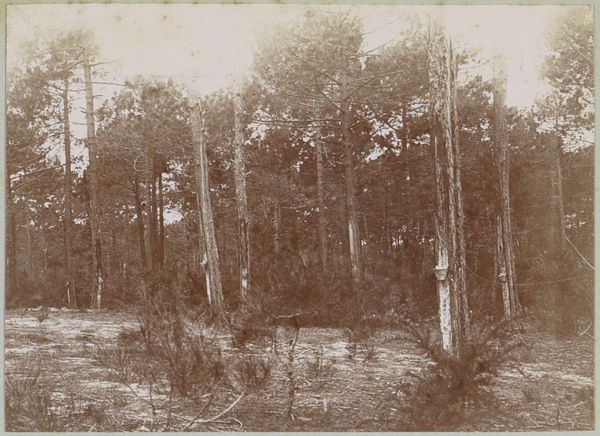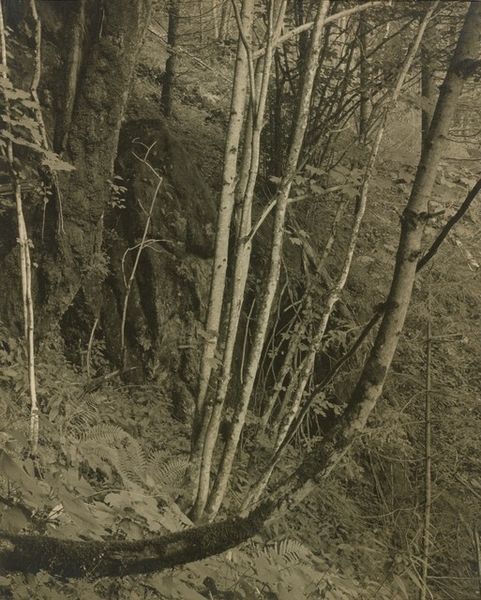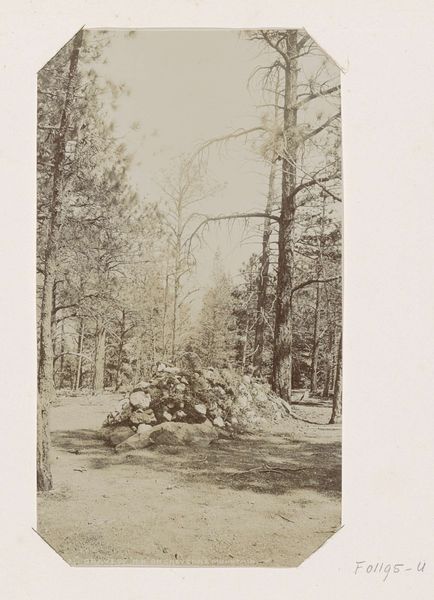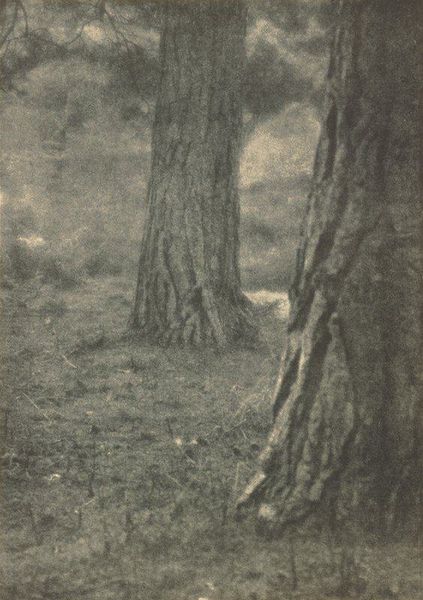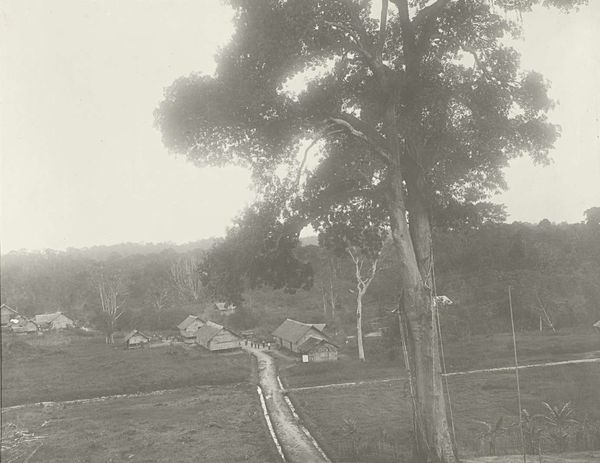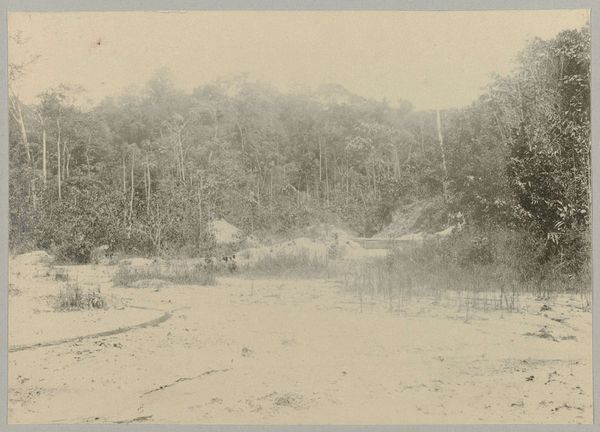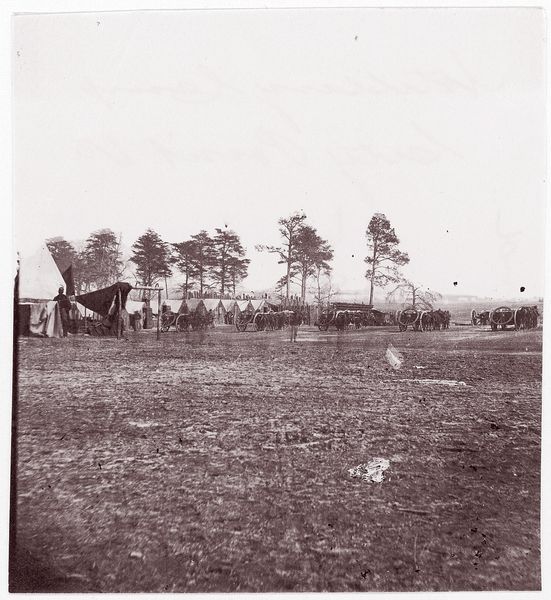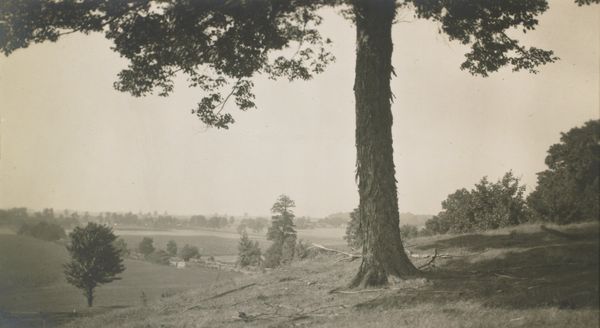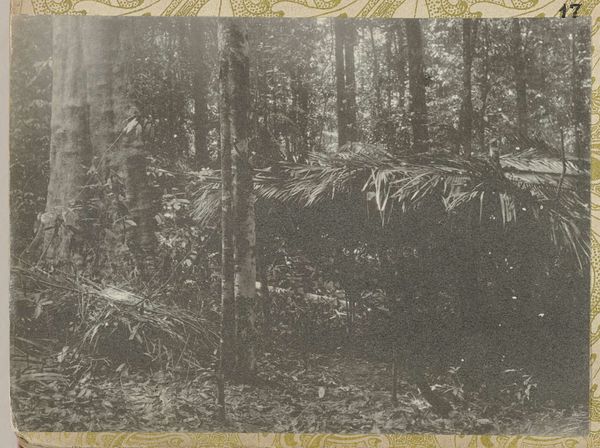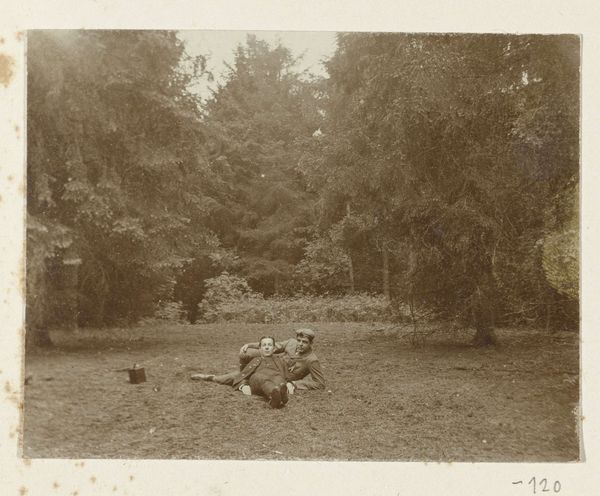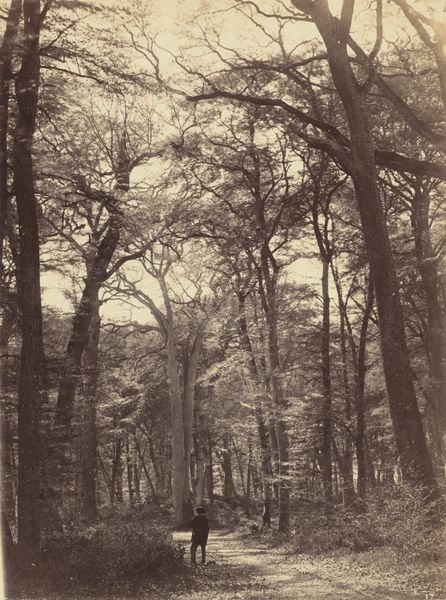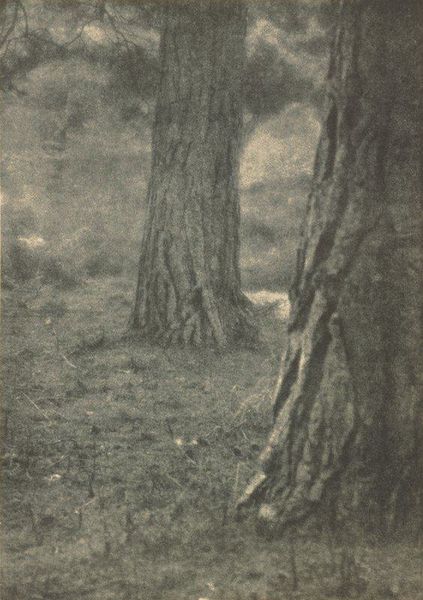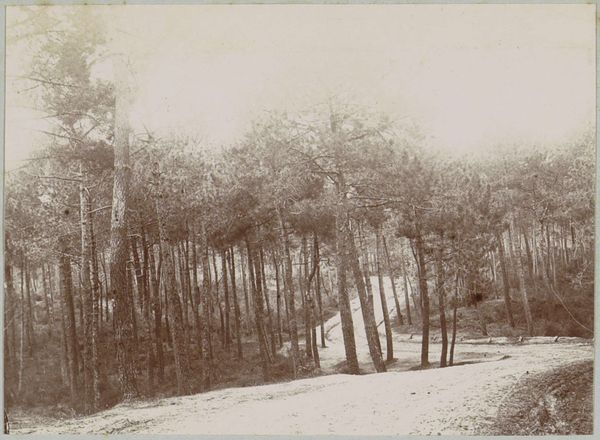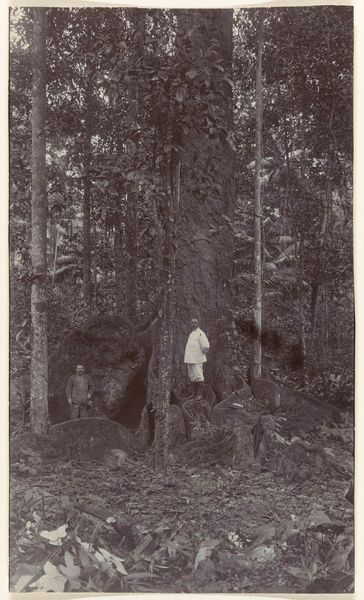
gelatin-silver-print
gelatin-silver-print
natural shape and form
countryside
nature photography
charcoal drawing
nature
nature friendly
nature heavy
united-states
outdoor activity
natural form
shadow overcast
Dimensions: 5 3/8 x 3 in. (13.65 x 7.62 cm) (image, sheet)15 1/8 x 10 1/4 in. (38.42 x 26.04 cm) (mount)
Copyright: No Copyright - United States
Editor: Here we have an "Untitled" photograph by Rudolf Eickemeyer, created in 1921. It's a gelatin-silver print depicting a man chopping down a tree, with a rural backdrop. It strikes me as a fairly stark depiction of labor and our relationship with nature. What's your perspective on this piece? Curator: This gelatin-silver print offers a glimpse into the industrial shaping of the American landscape. Eickemeyer gives us both the material act of deforestation, evident through the felled tree and the ax-wielding figure, and the consumption this represents. Consider the labor involved – a single worker, altering the landscape one tree at a time. What impact do you think industrial processes and consumption had on landscape photography at this time? Editor: It's fascinating to consider this image as part of the broader historical shift in production during the 20's in America. It's interesting how he captured that human impact in a photo celebrated for its ‘natural’ shapes. What was Eickemeyer saying? Curator: Perhaps he was illustrating the contradictions of progress – celebrating the natural world while simultaneously depicting its exploitation. Notice how the softness of the gelatin-silver print aestheticizes a destructive act. Do you think that aestheticization obscures or highlights the environmental cost? Editor: That's a great point about the inherent tension. By capturing what's real at the time and making it art, maybe the message can be hard to accept? It's been interesting considering how a seemingly simple photograph engages with ideas about labour, material and consumption. Curator: Absolutely, it reveals the intertwined relationship between nature, labor, and photographic representation. This deeper look encourages us to challenge perceived separations and connect the aesthetic, the social, and the ecological dimensions in art.
Comments
No comments
Be the first to comment and join the conversation on the ultimate creative platform.
